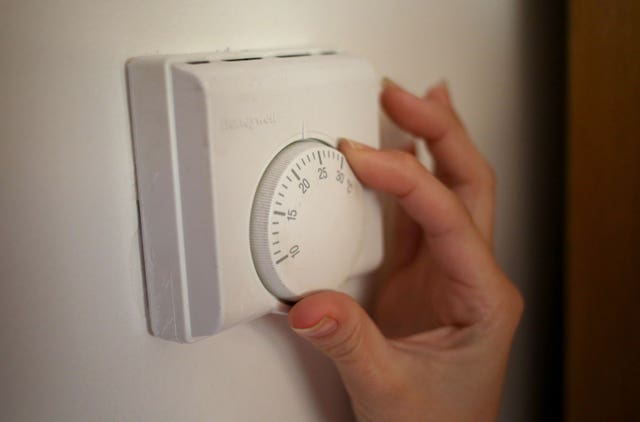
Tom Swarbrick 4pm - 6pm
29 December 2021, 00:04

The Resolution Foundation said families would be £1,200 worse off because of energy prices and higher National Insurance contributions.
Millions of families are facing a “cost-of-living catastrophe” due to soaring energy bills and rising taxes, an economic think tank has warned.
The Resolution Foundation (RF) said from next April families would typically face a £1,200-a-year hit to their incomes as the energy price cap is raised and a 1.25% increase in National Insurance contributions (NICs) comes into effect.
At the same time rising inflation – forecast to peak in the spring at 0.6% – means that real pay levels are set to stagnate, with real wages next Christmas no higher than they are this year.

The foundation’s chief executive, Torsten Bell, said the “squeeze” on living standards is likely to be so severe that Chancellor Rishi Sunak will come under intense pressure to act to alleviate the economic pain.
The latest warning comes amid fears among Tory MPs that a new year “cost-of-living crisis” will further undermine voter support for the Government that is already badly dented by reports of Downing Street parties in breach of Covid rules.
The RF said the peak of the “squeeze” looked set to be in April, when the cap on energy bills is expected to rise by around £500 a year while the cost of energy firm failures would add another £100 to consumer bills.
The price rise will disproportionately affect low-income families who spend more of their income on energy. It is expected to account for 12% of the income of the poorest households compared with 8.5% now.
At the same time, the RF said the freeze to income-tax thresholds and the 1.25% increase in personal NICs would cost the average household £600 a year.
For families in the top half of the income distribution, the NIC rise alone would lift tax bills by an average of £750.

Meanwhile, the RF said real wages, which were flat in October, had “almost certainly” started to fall and would not pick up again until the final three months of 2022, leaving real pay just 0.1% higher than it was at the start of the year.
By the end of 2024, real wages would still be £740 a year lower than if the UK’s “already sluggish” pre-pandemic pay growth continued.
Mr Bell said 2022 looked set to be defined as the “year of the squeeze”.
“The overall picture is likely to be one of prices surging and pay packets stagnating,” he said.
“In fact, real wages have already started falling, and are set to go into next Christmas barely higher than they are now.
“The peak of the squeeze will be in April, as families face a £1,200 income hit from soaring energy bills and tax rises.
“So large is this overnight cost-of-living catastrophe that it’s hard to see how the Government avoids stepping in.”
A Government spokesman said ministers had put in place £4.2 billion worth of “decisive action” to help support families with the cost of living.
This includes reducing the Universal Credit taper – worth over £2 billion – and a range of measures to help with bills, including the energy price cap and cold weather payments, as well as freezing alcohol and fuel duty.